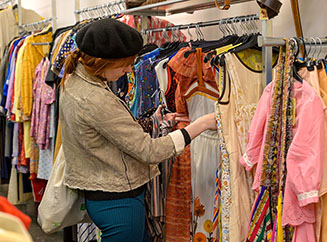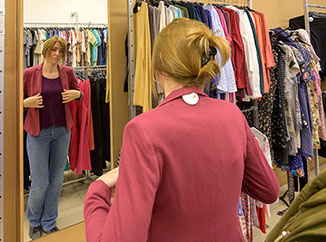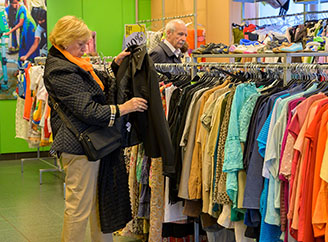consent_cookie
Duración: 1 year
Stores the user's cookie consent state
10-06-2019
It is a trend that has come later than other countries but is already unstoppable: healthy habits and environmental awareness are modifying the consumption of part of the population while the supply of secondhand fashion multiplies in Spain.
And it does so with a clear environmental benefit: buying second-hand clothes avoids the annual consumption of millions of new garments in our country, which translates into a significant saving of natural resources that the fashion industry requires to meet the demand of fast-fashion.
This is reflected in a report by Humana Fundación Pueblo para Pueblo, organization that since 1987 promotes the protection of the environment through the reuse of textiles and carries out development cooperation programs in Africa, Latin America and Asia as well as local support in Spain. According to this report, based on a survey of 700 customers of secondhand fashion stores in Madrid and Barcelona, six out of ten customers say that, when buying a garment in Humana stores, they do not need to buy it in another conventional outlet.
This replacement index confirms the environmental value of the reuse. "There is no more sustainable garment than what is already manufactured. It is a perfect example of how to extend the life cycle of clothing and buy consciously, "says the responsible for Sustainable Development of Humana, María Martínez. It is estimated that a fast fashion garment is used an average of five times and we get rid of it just 35 days after buying it.
2.7 million new garments left out in 2018
Customers of Humana stores acquired 4.7 million garments last year. This implies that, as a minimum, the commitment to reuse prevented the consumption of 2.7 million new articles in 2018, taking into account that replacement rate of 60%. It is a relevant saving for the environment taking into account that, for example, a jeans type requires 3,781 liters of water in the process of cotton production, manufacturing, transport and washing, and causes an emission of 33.4 kilos of CO2 during this cycle.
The report reveals, in addition, the reasons for purchase in secondhand stores: 52% is committed to the protection of the environment or the social purposes of the entity. The remaining 48% recognizes that the main motivation to acquire clothes in Humana is the offer of quality and varied at affordable prices.
The textile and fashion industry faces a major environmental problem: it is responsible for 8% of global CO2 emissions and also requires a high degree of consumption of resources and raw materials to meet the growing garment production (translated into a fast demand). fashion also in expansion) and a high level of waste generation, pre and post consumption.
It's time for clothes designed differently, used more time and reused more
The influential Ellen MacArthur Foundation states that "it is time for clothes to be designed differently, used for longer and recycled as much as possible. In a new textile economy, clothes would be designed to last longer, be used more and be easily rented, resold and recycled. We propose a vision for a new textile economy aligned with the principles of the circular economy ".
The reasons for the growing interest in secondhand fashion are: a quality offer at affordable prices, the rise of vintage and sustainable fashion, and the consolidation of values such as social awareness or responsible consumption. "It is more urgent than ever to bet on responsible consumption and exercise a conscious and sustainable purchase," says María Martínez, "reuse is an ideal vehicle to promote sustainable fashion and prolong the life cycle of garments."
Humana has 49 stores located in Madrid (25), Barcelona (19), Reus (1), Seville (3) and Granada (1), where you can buy fashion and accessories for men, women and children, as well as home textile.


